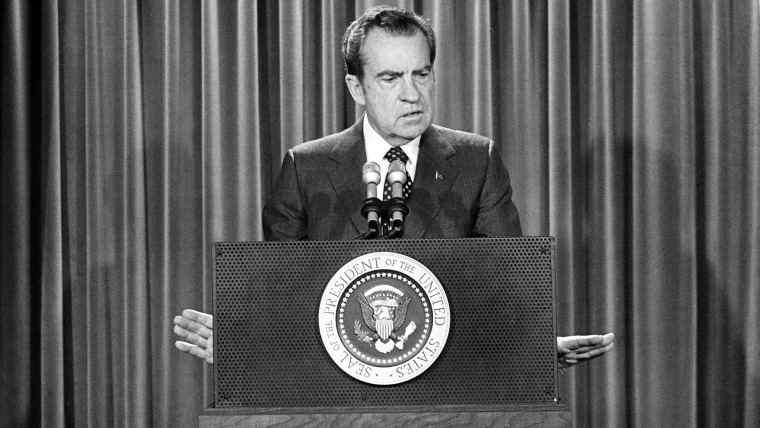At a White House event yesterday, Donald Trump called on a reporter who asked, "Mr. President, some of your allies have said that if Democrats open up an impeachment inquiry, that it could actually help your re-election chances. Do you agree with that?" (I'm not sure who asked this.)
According to the official White House transcript, this was the president's response:
"Well, I hear that too. But you can't impeach somebody when there's never been anything done wrong. We have a no collusion. We have no anything. There's no obstruction. There's no collusion. There's no anything."When you look at past impeachments, whether it was President Clinton or -- I guess, President Nixon never got there; he left. I don't leave. There's a big difference. I don't leave."
There was some chatter yesterday that when Trump said, "I don't leave," he may have been referring to his intention to remain in office, even if Congress voted to remove him. In context, that clearly wasn't the message.
Rather, Trump was trying to draw some kind of distinction between himself and Richard Nixon -- as if Nixon were some kind of quitter, which Trump believes he'll never be.
But the truth isn't quite so simple.
The walls were closing in on Nixon: many his misdeeds had been exposed; his public support was in free-fall; and his partisan allies were abandoning him. The Republican's impeachment was a certainty and his odds of surviving a Senate trial were effectively non-existent.
Nixon didn't become the first American president to resign in disgrace because he lacked fortitude; he quit because he wanted some control over inevitable departure.
Trump's posturing yesterday made it seem as if he has a personal resilience that will keep him in office, even if impeachment proceedings advance. But determination and strength are a whole lot less relevant than the apparent fact that Senate Republicans have no interest in holding the president accountable for his alleged misdeeds.
